Research Challenge for Climate Change Transformation—toward Science Based Action for Adaptation and Mitigation
NIES International Forum Report, Part 2
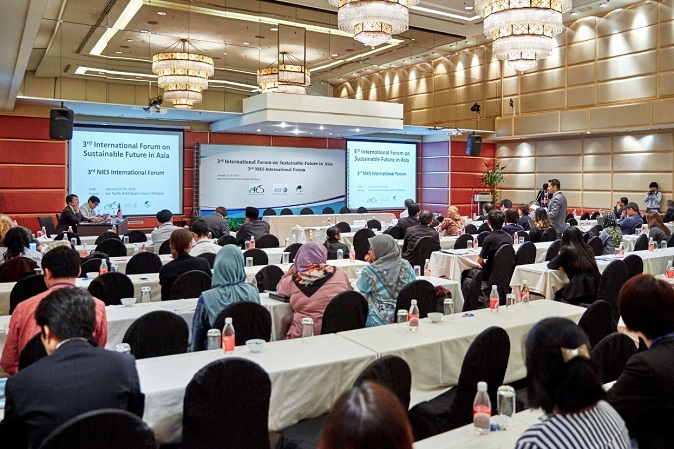
Research Challenge for Climate Change Transformation—toward Science Based Action for Adaptation and Mitigation
International society is at a turning point to transform into decarbonized society and also into the society which will be resilient against the rapidly growing risk of climate change. Climate change risk will surely increase the vulnerability of Asian countries whose economies are still growing. Adaptation and mitigation actions should be considered with greater urgency to achieve smarter economic growth and public welfare, under scientific forecast of the impact of climate change. While promoting appropriate actions, we need to consider how to strengthen such actions through research networks, and to focus on building better mechanisms to minimize the region’s vulnerability through cooperation among institutes and researchers. Since these problems cannot be solved with science alone, it is important for scientists to work closely with governments to facilitate appropriate policy making. The session delivered interactive discussions on actions that would both link and enhance the effectiveness of adaptation and mitigation actions. These issues were approached from the perspective of both adaptation and mitigation by considering how they can be synergized in Asia.
Linking Science and Policy
In this session, eight speakers delivered presentations on different themes.
-
Dr. Fumiko Kasuga, National Institute for Environmental Studies and Future Earth
-
Prof. Ho Chin Siong, Universiti Teknologi Malaysia
-
Prof. Rizaldi Boer, Bogor Agricultural University
-
Dr. Oleg V. Shipin, Asian Institute of Technology
-
Dr. Tsuyoshi Fujita, National Institute for Environmental Studies and Future Earth
-
Prof. Kensuke Fukushi, Integrated Research System for Sustainability Science, the University of Tokyo
-
Dr. Wang Qinxue, National Institute for Environmental Studies and Future Earth
-
Dr. Martiwi Diah Setiawati, Integrated Research System for Sustainability Science, the University of Tokyo
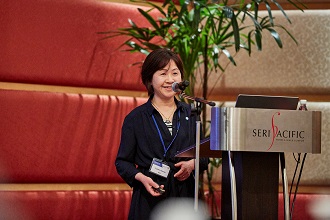
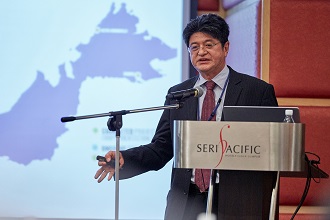
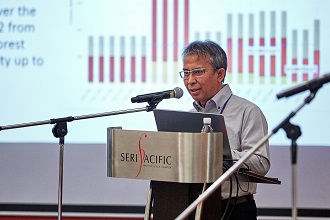
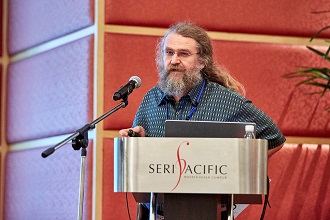
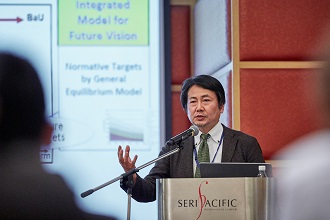
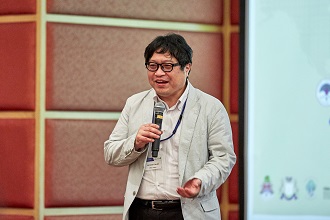
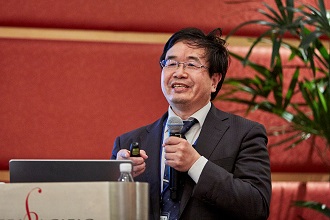
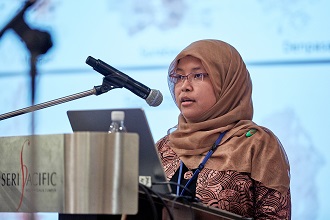
Presentations provided a wide range of topics including: Future Earth, science and policy in Malaysia; emission risk index based on deforestation indicators; monitoring and observation; social monitoring; adaptation initiatives; impact on permafrost in Mongolia; and the effects of climate change on health.
Most presentations focused on the various areas in Asia, covering different fields of studies such as natural and social sciences and engineering. A common theme in the presentations was that although global and regional environmental problems cannot be solved with science alone, actions that link science and policy can lead to “transformation” of society as a whole. Besides conducting research through monitoring and observation, and qualitative modeling and simulations on climate change, it is also important for scientists to engage in solution-oriented research and in collaboration with various stakeholders in society. The speakers also shared the understanding that scientific findings are essential in transforming society under climate change.
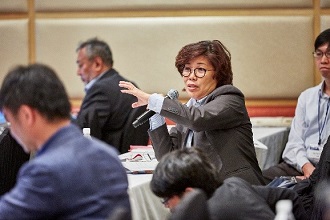
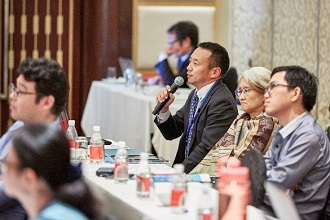
The next report will cover the Biodiversity session. One of the key words will be Sustainable Development Goals (SDGs). A future vision for achieving the goal will be introduced.
Written by Yuri Sugimoto (Research Project Collaboration Division) and Shuichi Ashina (International Coordination Office, Planning Department)
Photos by Seiji Narita (Public Relations Office, Planning Department)